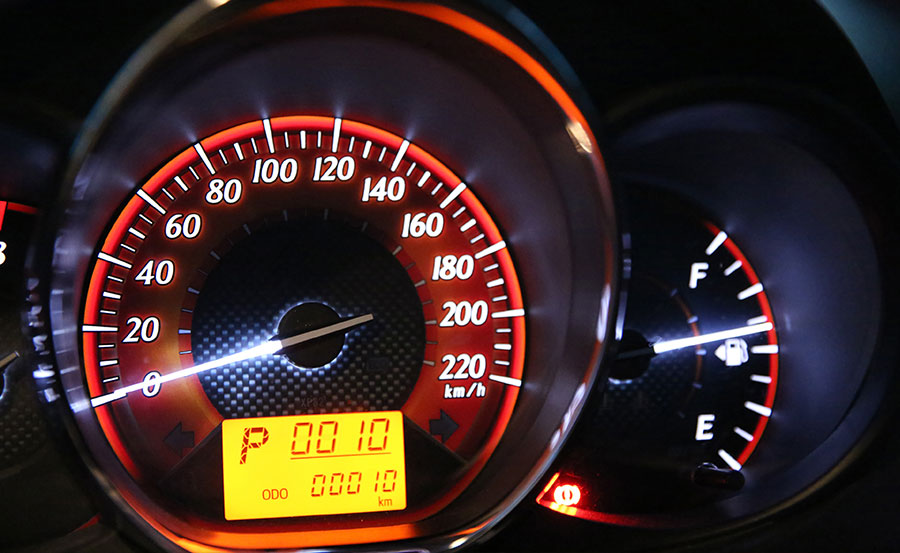A report looking at hundreds of cyber cars has shown that 85 per cent of the cars with roadworthies performed had an odometer reading of between 4km and 50km.
The Victorian Automobile Dealer Association (VADA) said the roadworthy certificates (RWCs) on near-new, low-distance vehicles was costing dealers a total of $22.3 million a year.
This cost was either being borne by dealers or it was being passed onto consumers, resulting in Victorians paying more for their cars.

The VicRoads website states that “a roadworthy is required whenever a vehicle is sold, if it is being re-registered, and to clear some defect notices”.
Under these rules, a dealer holding a cyber car which is being sold to a customer, will have to present the car for a RWC. The average cost of an RWC is said by the VADA parent, the Victorian Automobile Chamber of Commerce (VACC), to be $233.38.
The VACC said that members of the VADA “have been frustrated for some time by the requirement to obtain a roadworthy certificate when retailing a new, registered, low-kilometre vehicle that has only ever been owned by a new-car dealer”.
“These low-kilometre cars can be demonstrator cars, cyber cars or cars where a consumer reneges on a deal.”
The VACC has presented a formal submission to VicRoads on its latest findings that came out of its recent report into cyber cars.
The report, published on October 16 this year, was designed to assess the costs and impacts associated with the provision of roadworthy certificates on low-kilometre vehicles and was instigated by the VACC and Victorian dealers from the VADA.

This report was done on 639 vehicles – a sample of the VACC’s estimated 95,433 cyber cars and low-kilometre demonstrator cars – and found that:
- 84.5 per cent of low-kilometre dealer stock held by dealers had a roadworthy certificate completed on an odometer reading of between 4km and 50km.
- 9.4 per cent of low-kilometre dealer stock held had a roadworthy certificate completed on an odometer reading of between 51km and 999km.
- 6.1 per cent of low-kilometre dealer stock had a roadworthy certificate completed on an odometer reading of 1000km or more.
- The average cost of a roadworthy was $233.38 per vehicle. Multiplied by the estimated cars, that gave a revenue of $22.3 million to VicRoads.
- 99.4 per cent of these low-kilometre vehicles required no rectification work to be completed as part of the roadworthy certificate.
0.6 per cent (or four cars) required some rectification work to be completed as part of the roadworthy certificate.
But the VACC said that this rectification work was:
- a leaky tyre valve on one vehicle with an odometer reading of 10km
- minor cam phaser work on one vehicle with 689km
- a stuck electric window on one vehicle at 1121km
- minor heating drain work on one vehicle with 1278km.
“The VACC survey data is decisive,” the chamber said in its summation of the report.
“It shows that in the six-month reporting period the overwhelming majority of (99.4 per cent) low-kilometre, demonstrator, cyber and RDA cars held by dealers in Victoria, had no identified faults, or required any rectification work to be undertaken for a roadworthy certificate.
“That is, under the criteria mandated under VSI26, there was no rectification work required.
“This result is not unexpected given that these are brand-new vehicles that have been held in dealer custody for usually, less than two months.
“Car dealers, however, were required to pay an average cost of $233.38 per vehicle to obtain a roadworthy certificate when it was patently not required.
“The survey results essentially call into question the requirement for a roadworthy certificate on low-kilometre dealer-owned stock.
“Feedback received by VACC from its dealer members confirms that the cost of providing a roadworthy certificate for these vehicles (average cost of $233.38 per vehicle) is passed on to the consumer, resulting in the consumer paying a higher price for the vehicle than is necessary.

“VACC’s research supports the argument that roadworthy certificates for these vehicles represent an unqualified and unnecessary financial impost for car dealers and consumers.
“The cost of these roadworthy certificates to Victorian consumers is estimated to be $22.3 million per annum. They also represent unnecessary red-tape for businesses.”
VACC industry policy advisor Michael McKenna said the organisation has lobbied VicRoads for the past three years without success.
He said that the growing prevalence of low-kilometre trading stock in dealers’ vehicle stocks had led to “unprecedented internal cost rises”.
“These costs are absorbed by VADA members as they are required to obtain a roadworthy certificate for these vehicles when presenting them for retail sale,” he said.
“The VACC strongly recommends there be regulatory reform in this area.
“Reforms should remove the requirement for dealer-owned vehicles with odometer readings of up to 50km to have a roadworthy certificate completed.
“This would constitute a sensible reform, benefitting both Victorian business and consumers.”
In NSW, RWCs (previously known as ‘pink slips’ and now known as safety checks) are only needed for vehicles aged more than five years. It does not apply to new cars and has a cost of about $80 for each vehicle, depending on the vehicle type.
By Neil Dowling













 Read More: Related articles
Read More: Related articles

